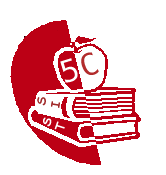Notes about science and socio-cultural categories
2013 SI
We're thinking about science and information literacy and scientific communication. Who is the audience for scientific communication? What are the norms of scientific discourse? (as per Lemke) What role does framing take?
Moving back, the discussion moved to what is science? Is there a scientific method? Are scientists Kuhnian or Feyerabendian? What do they want to be? Is science fundamentally the same or different from other human endeavors?
Do we want students to see science as it actually is? #OverlyHonestMethods How far down the rabbit hole do we want them to go?
Seeing scientific papers not as stand-alone artefacts, but part of a conversation within a particular research tradition.
Asking students whether they accept or reject scientific claims, asking students to use multiple sources of scientific information to make complex real-world decisions…
How about eliciting alternate conceptions of science… How does science work and does it actually work that way? How does the popular press interpret science? To what extent does the popular press (and advertisers) use scientistic imagery and language to influence audiences?
Maybe we can use investigative case-based learning… But we need to make things more concrete. When we talk about what is science and what is not science, what is not science? How do we recognize scientistic language and presentations that masquerade as science?
Which categories are social/cultural, which are scientific, what does the space between them look like, and how do we decide? Gender? Presenting a crisis point and then asking people to discuss it, and then move to ones with higher stakes. (Start with RuPaul's Drag Race, then move to Olympic athelete and gender test, miss universe, and Smith College case?)
We've got lots of good material. How do we structure conversation to get to the meta question of categorization? Are we going to ask them to do some work on what gender means in all these different contexts? Start off with common thing, send them off to research, bring them back. Groups will define different aspects of gender.
The topic ends up being different forms of knowledge assertion. Part of the earlier conversation was science being hijacked to drive cultural decisions: recognizing and rejecting scientistic conclusions.
For assessment, have students come up with, identify, or analyze another domain where science categories neither align nor correspond neatly with social/cultural categories. Or where they masquerade as each other.
Group:
- Log in to post comments
